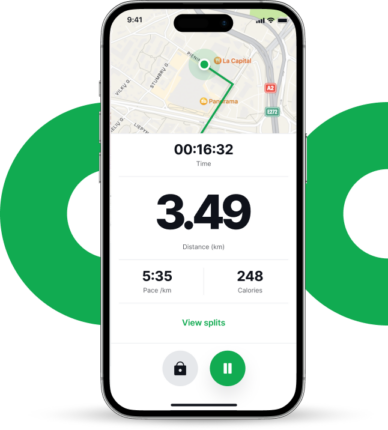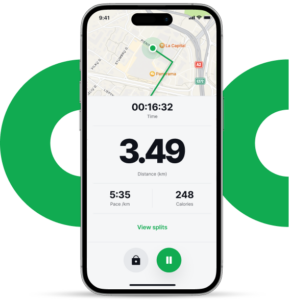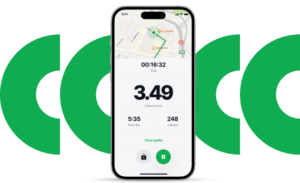What and when to eat during, before, or after your run can be confusing, especially if you’re new to running. But ensuring your body stays properly fuelled guarantees you get the most out of each running session. It also prevents you from hitting any walls when you’re out on your run or crashing afterward. So, what should you know?
In this article, we dive into what foods to eat during your run, how much you should eat, and why it’s important.
In This Article:
Why Is It Important to Eat During a Run?
When you run, your muscles take in a ton of glucose for energy. This can cause your blood sugar to drop. If your blood sugar drops too low, you can face various complications, as well as feel completely wiped out after your run. You also won’t be able to perform to the best of your abilities.
Further, if your blood sugar drops, but there isn’t any sugar coming into your body to replace it, you will feel very lethargic. You might also feel shaky, irritable, and hungry: not exactly the feelings you want to feel when you’re out for a run.
Also, eating during a run isn’t necessary for all runs. Short runs, such as those that fall below 60 minutes in length, probably don’t require you to bring a quick snack with you. For runs over 60 (and definitely for 90-minute runs), you probably want to have a snack in your back pocket to refuel.
How Much Should You Eat?
This depends. Did you eat before your run? If so, you might just need something quick, like a gel pack and water or a bit of dried fruit. Generally, you want to eat a substantial meal about 2 hours before your run, as this gives your body enough time to digest. If you’re past this window, a light snack is usually sufficient before you run, such as fruit, which is easy to digest.
Usually, for a run of about 90 minutes or more, a small packet of dried fruit or a gel pack should do the job. Always drink water with it!
As always, you’ll also want to refuel after your run.
Generally, you should consume about 25–30 grams of protein and about 100 grams of carbs in that post-run meal. You can also throw a bit of fat in there to help with digestion.
Some good examples for your post-run meal include tuna fish or eggs combined with complex carbs, such as potatoes, quinoa, or oats.
Try not to consume fruit after your run since fruit contains fructose. It goes straight to your liver and doesn’t get used by your muscles to aid in recovery.
What Should You Eat During Your Run?
Alright, so what are your options? We’ve kind of briefly mentioned a few, but let’s take a closer look.
1. Energy Gels or Gel Packs
Energy gel, or gel packs, are made for giving you energy during your run. They provide quick fuel without any GI distress. However, there is one thing that many people get wrong about this quick fuel up. For each gel pack, you want to consume the same amount of water. If you don’t, you might get that upset stomach that no one wants during a run.
2. Bars
Small energy bars or bites can be great during your run. These also provide quick energy while not causing discomfort in the stomach area.
3. Fruit
Fruit is easy for your body to digest. Another option besides fruit (since it can be difficult to carry) includes dry fruit or even kid’s applesauce packets. Something sweet often works to give you that extra bump you need to get through the second half of your run.
4. Electrolytes in Water
Sports drinks are great. While you may not want to rely on them for longer runs of 90 minutes or more, they can also add another layer to help fuel your body properly.
Ultimately, it’s finding what works for you and your body. Everyone is different. Thus, it might take some experimentation to find what is best for you. And during your training, it’s the best time to experiment. That way, come race day, you’re ready!
Key Takeaways
It’s important to eat during your run to ensure your body is adequately fuelled. Some great options include fruit, gel packs, bars, and sports drinks. Remember to experiment before race day, so you have your eating tricks down-pat for the big day.
- Fuelling your body mid-run during 60–90 minute runs or more is crucial to ensure you perform your best.
- How much you eat depends on you. It’s important to experiment and figure this out for your body yourself. When in doubt, start with small doses but bring extra, just in case!
- Fruit, bars, sports drinks, and gel packs are great options for mid-run snacks.














